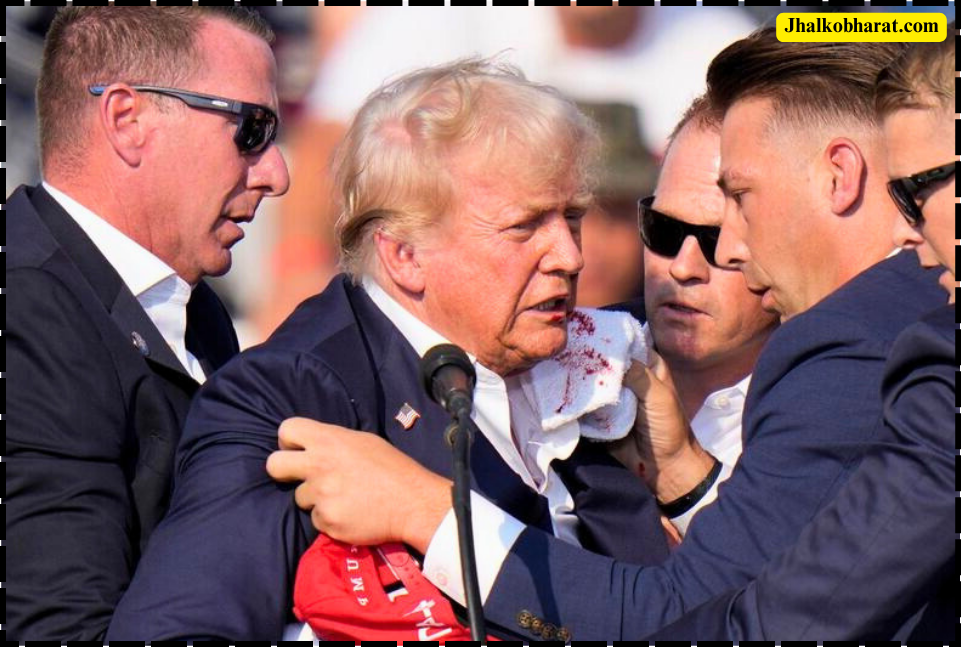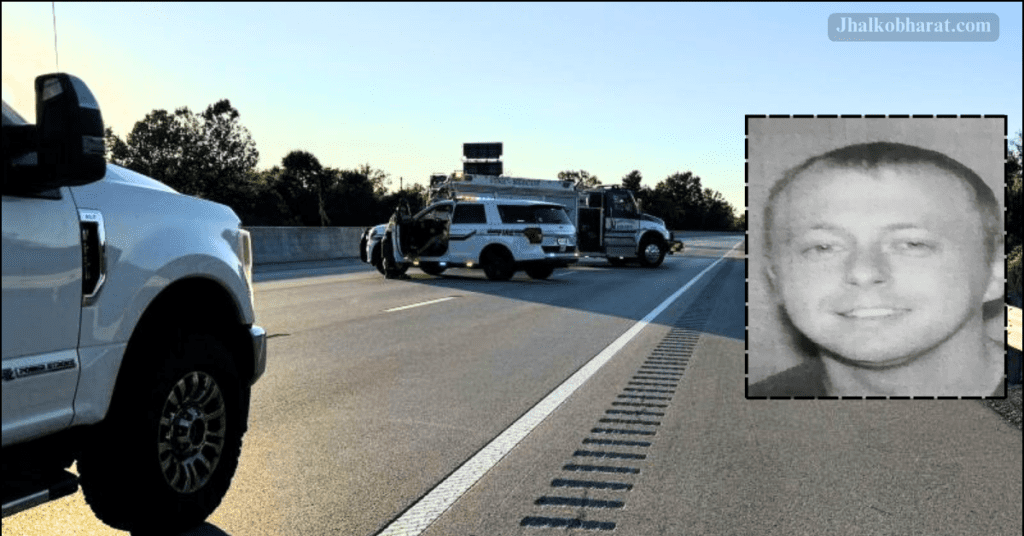In the realm of U.S. presidential elections, few things are as unpredictable as natural disasters. Every four years, hurricanes, wildfires, and other catastrophes disrupt political campaigns, leaving voters to judge candidates not just by their policies but by how they respond in moments of crisis. The latest chapter in disaster politics sees Vice President Kamala Harris and former President Donald Trump trading barbs over the federal government’s response to Hurricane Helene, while President Joe Biden urges unity amid the chaos.
As the 2024 presidential election draws nearer, natural disasters, particularly hurricanes, have once again become a hot-button issue. How political leaders react during these events can either bolster or damage their political fortunes. This article delves into the ongoing political drama surrounding disaster management, focusing on the reactions of key figures like Harris, Biden, and Trump, and the historical significance of disasters in shaping presidential politics.
A Presidential Election Blown by a Hurricane
Natural disasters have the power to shift political narratives, especially during election years. For Biden and Harris, the federal government’s response to Hurricane Helene is crucial. They aim to mirror the success of Hurricane Sandy’s recovery in 2012 under President Barack Obama, a smooth and effective federal response that earned the White House praise in the middle of a heated election season.
On the other side of the aisle, Donald Trump is looking to turn Hurricane Helene into a political weapon. He likens the Biden administration’s handling of the disaster to the sluggish response to Hurricane Andrew in 1992, which was widely blamed for the defeat of then-president George H.W. Bush. Trump took the stage in Saginaw, Michigan, accusing Biden and Harris of failing to manage the hurricane effectively, claiming, “There’s nobody that’s handled a hurricane or storm worse than what they’re doing right now.”
Trump’s Controversial Remarks and Fact-Checking
In typical fashion, Trump’s claims about the federal disaster response to Hurricane Helene have sparked controversy. He falsely alleged that federal disaster funds were being allocated to migrants rather than American citizens, and that Georgia Governor Brian Kemp struggled to contact President Biden in the wake of the disaster. Neither of these assertions hold water, according to fact-checkers. Still, such claims are not new in Trump’s political playbook. His tendency to exaggerate or manipulate facts has often been part of his strategy to sway public opinion.
Interestingly, Trump’s critics have accused him of playing politics with disaster relief during his own presidency. Allegations surfaced that he was hesitant to provide aid to Democratic-leaning areas, notably California, during the devastating wildfires. While Trump and his campaign have labeled these claims as “fake news,” they have added fuel to the fire in the debate over how disaster relief should be managed without political bias.
Biden and Harris: A Call for Unity Amid Disaster
As the incumbent administration, Biden and Harris have had to navigate the complex terrain of disaster politics in real-time. During a tour of the areas ravaged by Hurricane Helene, Biden made a direct appeal for Americans to put politics aside and focus on helping those in need. Speaking in Ray City, Georgia, he emphasized the importance of setting aside partisanship: “When you do that, I hope we begin to break down this rabid partisanship that exists. There’s no rationale for it.”
Also Read: Tata AIA Term Plan Online: 10 Tips for Optimizing

For Vice President Kamala Harris, the challenge is to remain focused on the long-term recovery efforts. In Augusta, Georgia, she reassured residents that the federal government was committed to a sustained response, stating, “We are here for the long haul… The coordination that we have committed ourselves to a long-term plan to reestablish families, residents, and community functionality. Harris didn’t specifically address Trump, but her message was still quite clear: the federal response will not be derailed by political gamesmanship.
The Long History of Disaster Politics
Disaster politics is by no means a new phenomenon in the U.S. The interplay between natural disasters and political fortunes dates back more than a century. In the wake of the Great Mississippi River Flood of 1927, then-president Calvin Coolidge appointed Herbert Hoover to lead the relief efforts. Hoover’s successful management of the disaster helped propel him into the White House, though his presidency would later be marked by the Great Depression.
Since then, disaster politics have shaped the legacies of numerous presidents. Lyndon B. Johnson set the modern standard for disaster response when he assumed personal control of recovery operations after Hurricane Betsy in 1965. As Lara Brown, a political scientist and author, explains, “Presidents – as chief executives and the only leaders selected by the entire country – are expected to take actions that will protect and help Americans. When disasters occur, Americans look to presidents to see how closely their promises of compassion, protection, and assistance match their deeds.”
Lessons from Past Presidential Disasters
For future presidents, the cautionary tale is the elder George H.W. Bush. His botched response to Hurricane Andrew in 1992 contributed to his electoral defeat. The slow federal response not only fueled criticism but also cemented the narrative that Bush was out of touch with the needs of disaster victims. Despite his significant international achievements, domestic failures, like Andrew’s aftermath, ultimately cost him re-election.
George W. Bush, his son, faced similar disaster-related scrutiny, though his situation was even more dire. After mishandling the response to Hurricane Katrina in 2005, Bush saw his presidency take a significant hit. The images of devastation in New Orleans and the slow government response became defining moments of his tenure. In his memoir, George W. Bush admitted that the Katrina response, alongside other failures, marked a low point in his presidency.
Obama, Christie, and the Model of Bipartisan Cooperation
Also Read: Is AIG Phone Insurance Worth It?

In contrast, President Barack Obama handled disaster response with political finesse. During the recovery from Hurricane Sandy in 2012, Obama worked closely with New Jersey Governor Chris Christie, a Republican. Their cooperation became a defining moment of bipartisanship and helped Obama secure re-election against Mitt Romney. For Christie, however, working with Obama hurt his chances in the Republican presidential primary. Donald Trump would later mock Christie for his cooperation with Obama, using it as a weapon in the 2016 primary.
Also Read:
Trump’s Own Record on Disaster Relief
As Trump now criticizes the Biden administration’s handling of Hurricane Helene, his own record on disaster management has come under renewed scrutiny. According to a report from Politico’s E&E News, Trump was reluctant to provide aid to states that leaned Democratic, such as California during its wildfire crises. Former Trump administration official Olivia Troye expressed frustration over Trump’s current rhetoric on disaster relief, saying, “We don’t look at disaster relief through a political lens.”
Biden, taking to Twitter, pointedly responded to these allegations, stating, “You can’t only help those in need if they voted for you. This guy has no idea about the most fundamental aspect of being president.”
Disaster politics will always play a crucial role in shaping presidential campaigns. The public looks to political leaders in times of crisis, and their response to natural disasters can either strengthen or weaken their credibility. As the 2024 election approaches, the aftermath of Hurricane Helene is proving to be yet another battleground where leadership, competence, and empathy are under scrutiny.
For Biden and Harris, the key challenge will be ensuring that the recovery efforts remain focused on helping victims and maintaining public trust. For Trump, it’s an opportunity to capitalize on any missteps, real or imagined, to bolster his political campaign. However, the lessons of history are clear: how leaders respond in times of disaster will have lasting implications on their political fortunes.







Wow, incredible blog layout! How long have you been blogging for? you made blogging look easy. The overall look of your site is wonderful, let alone the content!
Hello! I hope you’re having a great day. Good luck 🙂
Awesome